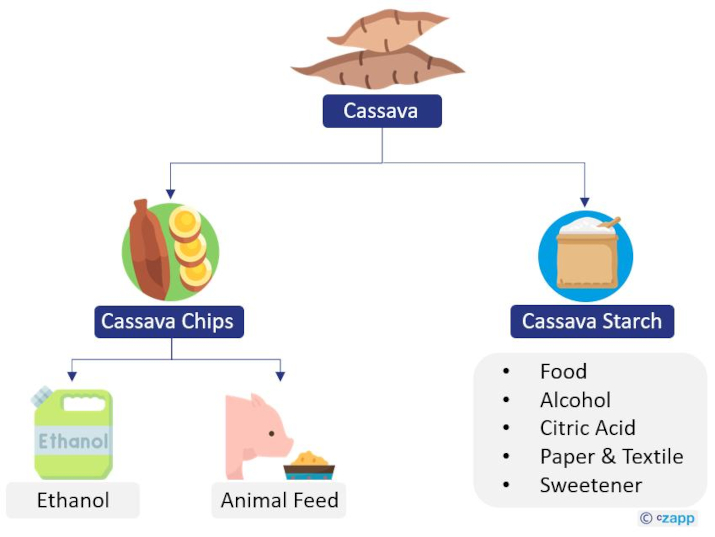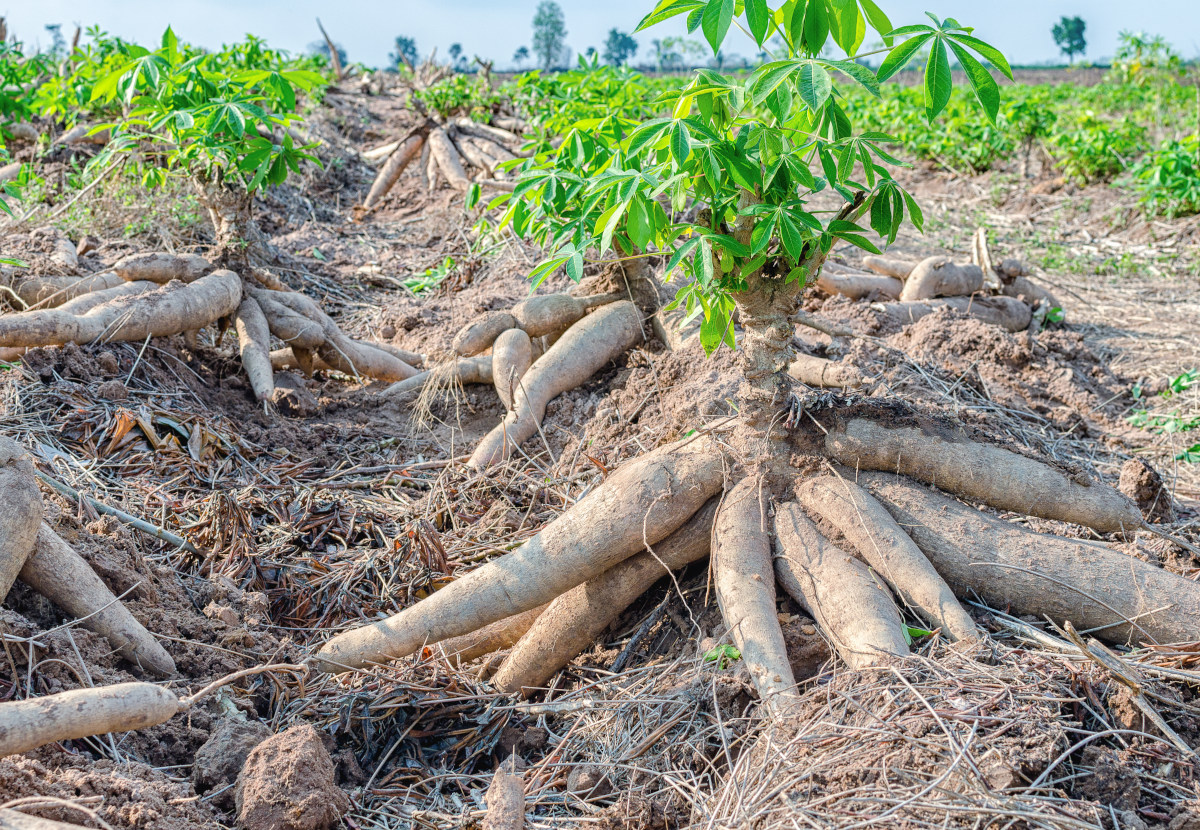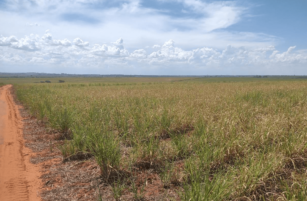Opinions Focus
- The prospect of new cassava supply means local prices are falling.
- Cassava production should be higher than last year’s.
- However, demand may outstrip supply in 2023.
Thailand’s Cassava Harvest Begins
Thailand’s cassava harvest is underway. Cassava competes with cane for acreage in many parts of Thailand, and it can also be used as an ethanol feedstock. Cassava and sugar are therefore interconnected in Thailand.
Thai cassava prices are currently close to record highs, which makes us nervous about cane’s ability to divert acreage in coming years.
However, cassava prices have started to fall as cassava mills start operations.
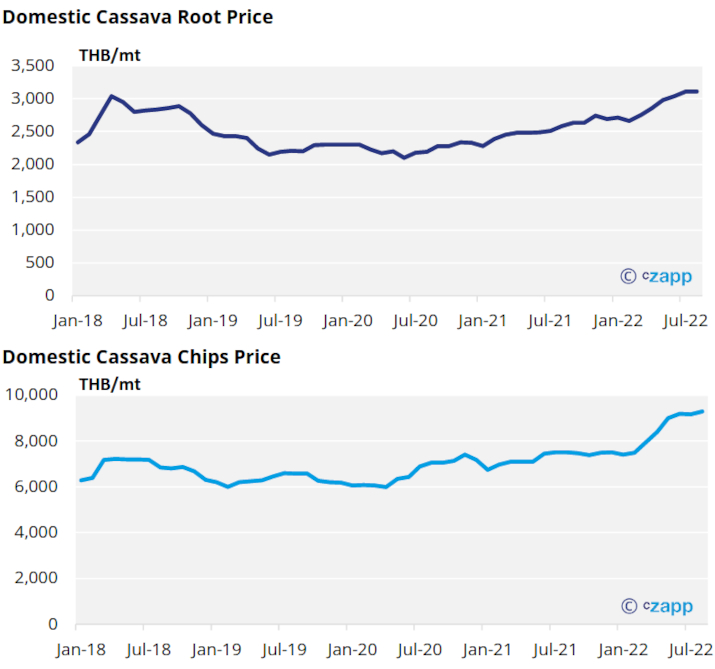
Most mills have started starch milling but have not yet started drying operations as the weather is still too wet.
The Thai Tapioca Trade Association (TTTA) expects 35m tonnes of cassava to be made in 2022/23. This is because the harvested area has increased 2.3% due to higher prices, less management, and lower production costs as compared to other crops. As a result, farmers have begun to plant cassava instead of cane and corn.

Yields are up 2% this year thanks to favourable weather, despite farmers applying less fertilizer.
However, the TTTA also think that demand for cassava starch, chips, pellets and ethanol could reach 46.5m tonnes.
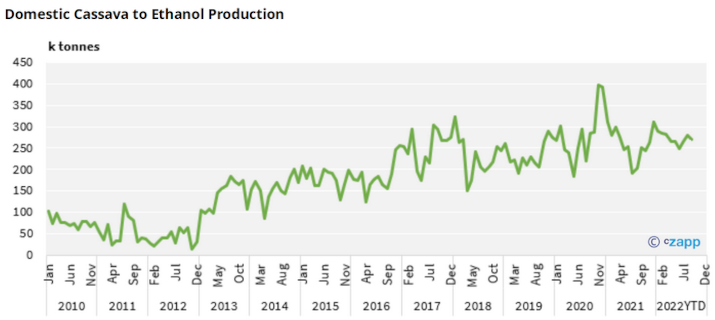
In addition, Chinese demand for Thai cassava could be high due to the strong domestic Chinese corn price. Cassava prices may therefore need to ration demand and then also incentivize new cassava area.
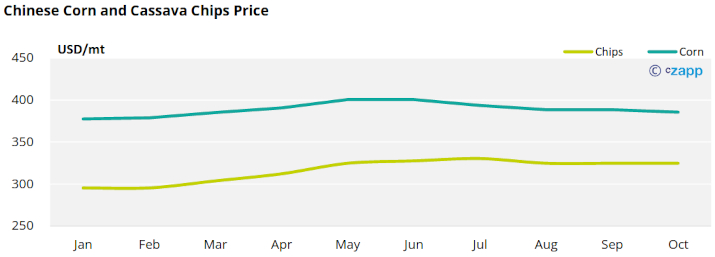
What is Cassava?
Cassava is a drought-tolerant crop that is grown in over 100 countries, including Africa, America, and Asia. It is also one of the world’s three most important economic crops, earning it the title “King of Starch”
It is rich in starch content, often used as a raw material in food industry. Besides from being able to extract starch, glucose, citric acid, alcohol, glutamic acid, lysine, protein, and other substances useful in the manufacturing of food, alcohol, paper and textile. It is also can be used as ethanol and animal feed.
Cassava can be planted throughout Thailand, except for the southern region, which is a lowland area that is vulnerable to floods.
